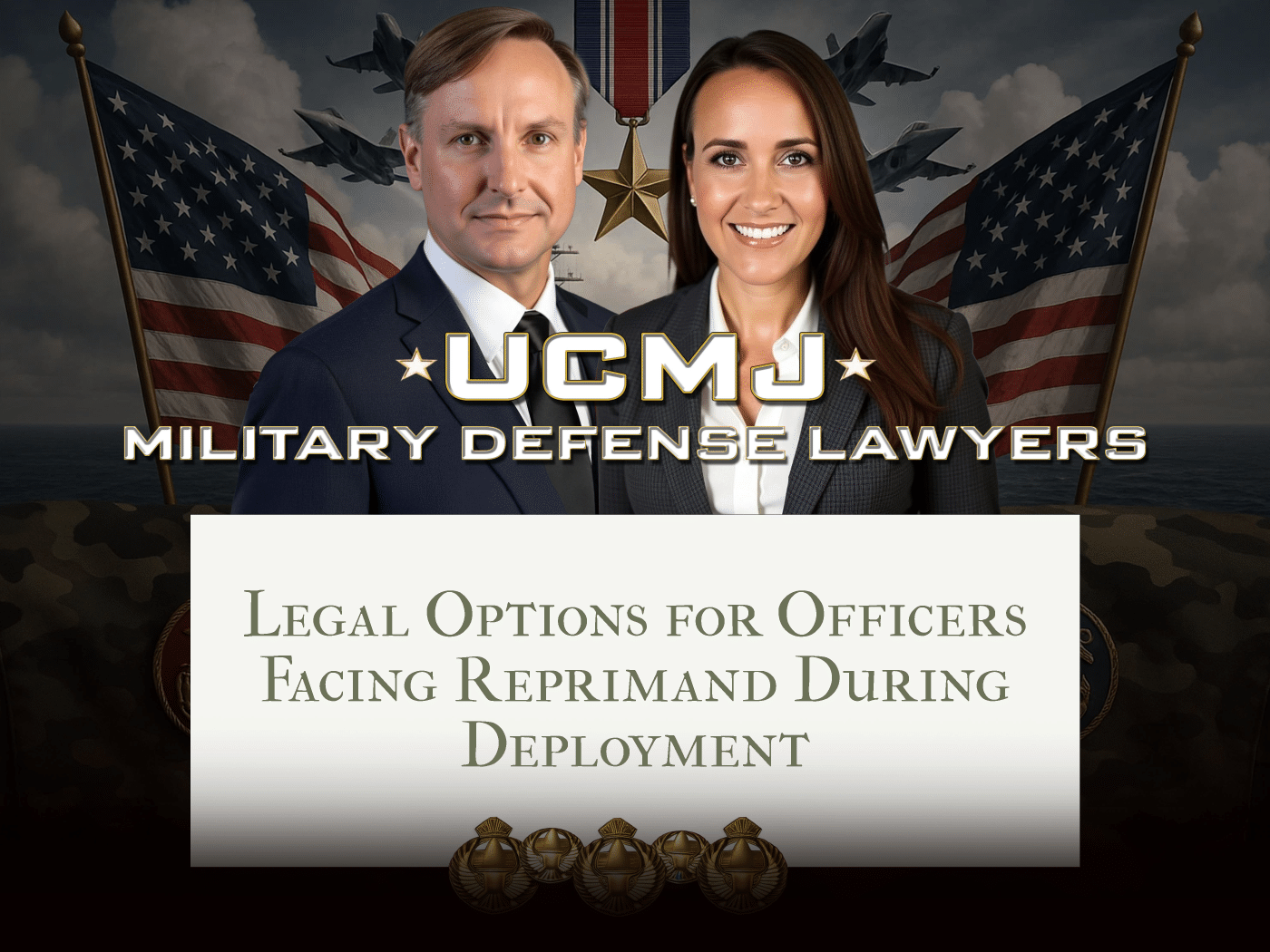Military officers voluntarily accept immense responsibility when serving their country, especially during overseas deployments. Unfortunately, issues such as misconduct allegations or procedural violations can arise, even in high-stress situations. When this happens, officers may face an administrative action known as Officer Reprimand Deployment. This type of reprimand, particularly during active duty, is not just a procedural mark — it can have lasting implications on an officer’s military career, reputation, and even civilian opportunities post-service. If you are an officer facing such a reprimand, it’s crucial to understand your legal rights and available options. You’re not alone — thousands have faced similar challenges, and outcomes can improve significantly with the right information and counsel. This comprehensive guide walks you through what Officer Reprimand Deployment means, why it matters, how the process works, and what actions you can take to protect your career and future.
What You Should Know About Officer Reprimand Deployment
An Officer Reprimand Deployment typically refers to a formal letter of reprimand issued to a military officer while deployed or in the context of a deployment-related incident. These reprimands are usually non-judicial in nature but can be just as damaging to an officer’s record as a court-martial result. The reprimand becomes part of the service member’s permanent or official file, which can significantly impact promotional eligibility, future duty assignments, and separation proceedings.
For example, an officer stationed overseas may receive a reprimand for failing to report a security breach, even if the breach was the result of systemic failures beyond their control. Another case might involve accusations of fraternization during deployment, where even uncorroborated allegations could prompt a reprimand. These cases reflect the broad discretion commanders hold and how context, rather than criminal conduct, often leads to reprimands.
Understanding the nature and potential outcomes of Officer Reprimand Deployment is essential if you hope to challenge or minimize its impact effectively. Timely action and legal support can make a significant difference.
The Real-World Impact of Officer Reprimand Deployment
A reprimand received during deployment can severely harm an officer’s trajectory in the armed forces. Since the reprimand is often recorded in the Official Military Personnel File (OMPF), it becomes visible to promotion boards, duty assignment officers, and, eventually, separation authorities. Even when not resulting in immediate discharge, it can hinder an officer’s professional growth, limit career opportunities, and induce psychological stress that affects both personal and professional life.
Beyond internal military consequences, an Officer Reprimand Deployment can impact post-service civilian careers. Employers, especially those in sensitive sectors such as security, defense contracting, or law enforcement, may view reprimands as red flags, regardless of the circumstances. Financial consequences can follow, especially if separation or grade reduction reduces retirement benefits.
- Scenario 1: Lieutenant receives reprimand for a miscommunication that led to a missed patrol. Consequence: remains passed over for promotion for two consecutive boards.
- Scenario 2: Major receives a deployed-time reprimand related to local procurement procedures. Consequence: forced separation via administrative board within a year.
- Scenario 3: Captain involved in alleged inappropriate relationship. Consequence: loses eligibility for special assignments and security clearance.
What You Can Expect from the Officer Reprimand Process When Deployed
- Step 1: Notification. The officer will receive formal notification outlining the reason for the reprimand, including supporting documents and evidence.
- Step 2: Opportunity to Respond. Officers are generally given time to submit a written rebuttal and supporting statements to challenge the reprimand’s validity.
- Step 3: Command Review and Filing. The commanding general or flag officer will consider the response, then decide if the reprimand is filed locally (temporary) or in the official file (permanent).
How to Handle Officer Reprimand Deployment Situations Like a Pro
Answers to Your Top Questions About Officer Reprimand Deployment Globally
How Gonzalez & Waddington Offers Strategic Support for Reprimanded Officers
Gonzalez & Waddington is a globally recognized law firm specializing in military criminal defense and administrative actions. With a strong track record of defending officers against reprimands, adverse actions, and involuntary separations, the firm provides strategic legal guidance rooted in deep understanding of military law. Their attorneys have served in the military and defended clients across high-profile cases and duty stations worldwide. By leveraging their experience, Gonzalez & Waddington helps officers challenge unjust allegations, present compelling rebuttals, and protect their reputations. Whether the issue unfolds in a combat zone or home station, the firm’s legal team offers unwavering support and proven results, giving clients confidence and clarity in high-stakes situations.



